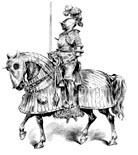
Religious Persecution Is Rising. Do Catholics Care?
NEW OXFORD NOTEBOOK
This summer saw an unprecedented series of acts of anti-Catholic vandalism across the U.S.
The many outrages included beheadings of statues of Jesus Christ (in West Kendall, Fla., and El Paso, Tex.) and the Virgin Mary (in Gary, Ind., Chattanooga, Tenn., and in both Citrus Heights and Chino, Calif.). The attacks were far flung, seemingly occurring in every corner of the country. A crucifix was smashed at a shrine in Rockford, Illinois, and another was tagged with red spray paint at a chapel in Flagstaff, Arizona.
There seemed to be no safe haven — not even in remote resort towns. A statue of Christ at a skiing destination in Whitefish, Montana, was splattered with brown paint and festooned with flags reading “Rise Up” and “#BLM” — the latter a reference to the Black Lives Matter movement, some of the leaders of which have openly incited anti-Catholic agitation. BLM activist and social-media influencer Shaun King, for example, said that statues depicting Jesus and Mary as “European” are “tools of oppression” and representative of “white supremacy,” and they must “come down.”
The statue of Christ in Whitefish is listed in the National Register of Historic Places. Rather ironically, it was erected in honor of World War II veterans: the men and women who gave their time, effort, energy, and, in many cases, their lives to fight against actual institutionalized “white supremacy” in Nazi Germany and defeat those who wielded heavy-bladed “tools of oppression” in Europe, Africa, and Asia. A further irony: The population of Whitefish is 95.8 percent white and 0.5 percent black.
You May Also Enjoy
Pope Francis isn't satisfied with the reductionism that narrows the Catholic ethic of life to "no abortion," or the Catholic teaching on the family to "no same-sex marriage."
How can the Synod on Synodality be a rebalancing of ecclesial powers? It is, after all, the brainchild of the most powerful of ecclesial figures.
The modern age worships success, and the notion of fighting for a noble, though doomed, cause is foreign to us.

